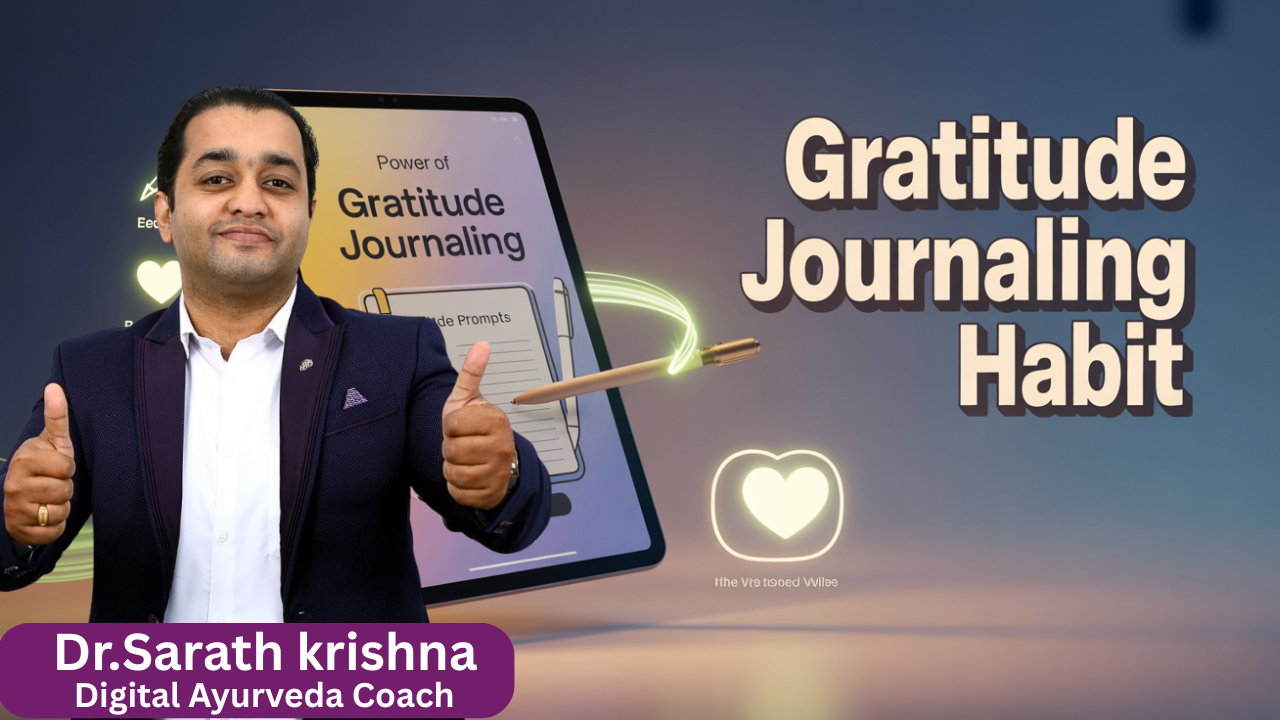
Why Gratitude Journaling Matters More Than Ever
Feeling overwhelmed, emotionally drained, or directionless? You’re not alone.
In a world chasing productivity hacks and dopamine highs, the simple act of writing down what you’re grateful for might seem insignificant. But neuroscience and ancient wisdom agree: gratitude journaling rewires your brain, restores emotional balance, and nurtures long-term well-being.
Whether you’re a high-performance leader, a mindful professional, or a soul seeking peace—this habit is your anchor.
Let’s explore why this tiny daily ritual holds such transformational power.
What is Gratitude Journaling?
Gratitude journaling is the habit of writing down the things, people, or moments you’re grateful for — daily or regularly — to cultivate a mindset of appreciation.
You simply document:
- What you’re thankful for
- Why it matters to you
- How it made you feel
💡 This practice shifts your focus from what’s missing to what’s present — helping you create from abundance, not lack.
1. How Gratitude Journaling Rewires Your Brain
Neuroscience confirms that gratitude practice:
- Activates the prefrontal cortex, enhancing decision-making and focus
- Triggers the release of dopamine and serotonin — natural mood boosters
- Decreases cortisol (stress hormone) levels
Practicing gratitude for just 21 days shows measurable improvement in brain activity linked to happiness and compassion.
2. Benefits of Daily Gratitude Journaling
- ✅ Boosts emotional resilience during challenges
- ✅ Improves sleep quality by calming your mind before bed
- ✅ Increases productivity through positive mental framing
- ✅ Strengthens relationships by fostering appreciation
- ✅ Builds consistency in mindfulness and reflection
3. How to Start a Gratitude Journaling Practice
You don’t need fancy journals or long entries. Start with this:
Gratitude Formula:
- “I’m grateful for ___ because ___.”
📘 Example:
“I’m grateful for the kind message from my friend because it reminded me I’m not alone.”
Pro Tips:
- Do it at the same time daily (morning or night)
- Be specific (avoid vague statements)
- Add how it made you feel
4. Best Time to Journal Gratitude: Morning vs. Night
| Time | Benefits |
|---|---|
| 🌅 Morning | Sets a positive tone, boosts productivity |
| 🌙 Night | Improves sleep, reflects on daily wins |
Choose the time that aligns with your energy and intention.
5. Why Gratitude Journaling Boosts Mental Health
According to a study published in the Journal of Personality and Social Psychology, people who wrote gratitude letters or kept journals reported:
- Higher levels of optimism
- Stronger immune response
- Reduced symptoms of depression and anxiety
Journaling = Emotional Detox.
6. Gratitude Journaling for Entrepreneurs & Professionals
For business owners and professionals, gratitude journaling:
- Improves clarity in decision-making
- Fosters team empathy
- Builds resilient leadership
It keeps you grounded amidst chaos and helps you celebrate small wins.
7. Common Mistakes to Avoid in Gratitude Journaling
- ❌ Writing vague entries (“I’m grateful for life” — too generic)
- ❌ Skipping emotional connection (describe why it matters)
- ❌ Treating it like a task (instead of a reflection)
FAQ: People Also Ask
1. What should I write in a gratitude journal?
Write specific things, people, or events you’re thankful for and why. Include how they made you feel.
2. How often should I journal gratitude?
Daily is ideal. But even 2–3 times a week brings benefits.
3. Can gratitude journaling reduce anxiety?
Yes. It lowers stress hormones and promotes emotional regulation, improving mental health over time.
4. Is there a best time to practice gratitude journaling?
Morning sets intention; night promotes rest. Choose based on your lifestyle.
5. Can kids or teenagers use gratitude journaling?
Absolutely. It builds emotional intelligence and reduces comparison-based stress early in life.
Small Habit, Big Shift
Gratitude journaling is more than a feel-good practice. It’s a daily act of self-leadership, mental hygiene, and emotional alignment.
In just 3–5 minutes a day, you can:
- Reshape your mindset
- Amplify your joy
- Cultivate grounded success
🌱 Start today. Your future self will thank you.
✨ Have you tried gratitude journaling before?
Drop one thing you’re grateful for in the comments below 👇
Let’s start a chain of joy, together.